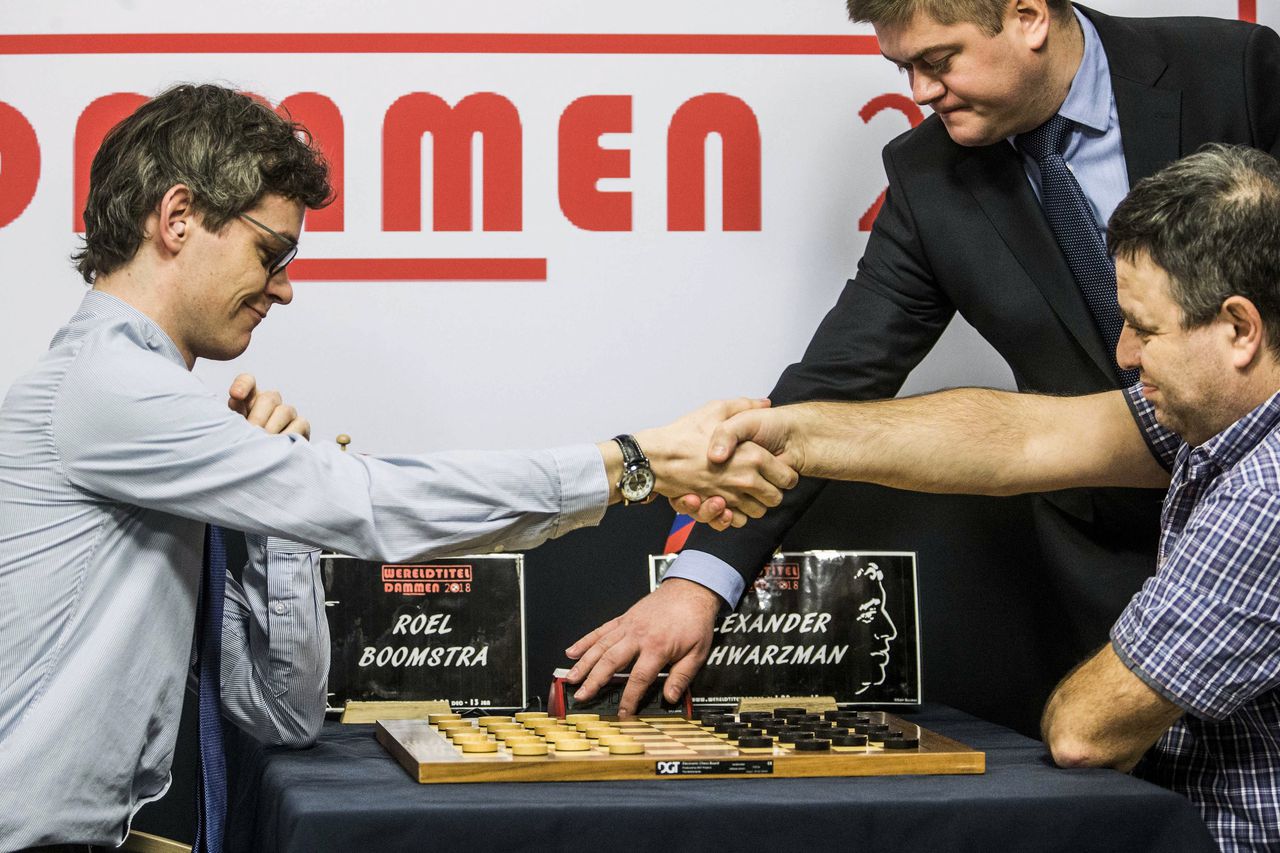UG student Boomstra world champion in draughts
Roel Boomstra has won the Draughts World Championship for the second time. His opponent was fourfold world champion Alexander Schwarzman. Boomstra, who studies Physics at the University of Groningen, also won the title in 2016.
The decisive match took place on Sunday and was most exhilarating. Twelve regular matches up till then had not yet produced a winner. Boomstra was in the lead by winning one match; the other eleven matches ended in a draw. A final regulation match was needed to force a decision. After eight blitz games, the UG student had extended his lead to three victories, which secured him the world title.
Boomstra is very excited about winning the world title. ‘The last match was very tense as I just saw those seconds tick away.’ Russian grandmaster Schwarzman acknowledged that Boomstra deserved the title: ‘I have never seen him compete as strongly as during these blitz games’.

More news
-
17 February 2026
The long search for new physics
-
10 February 2026
Why only a small number of planets are suitable for life
